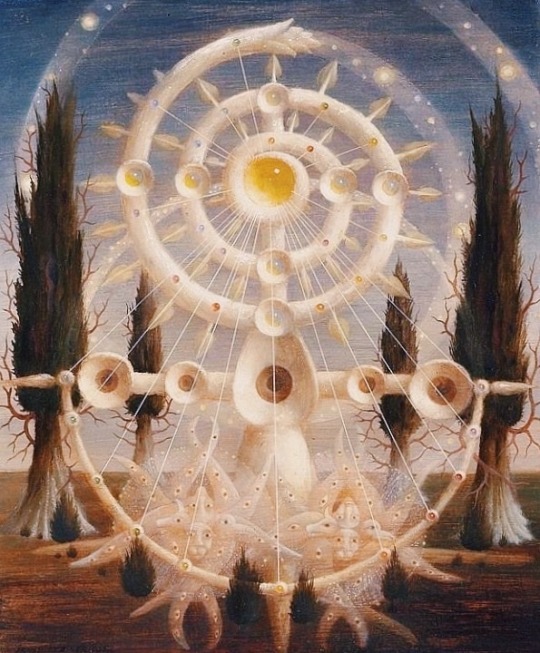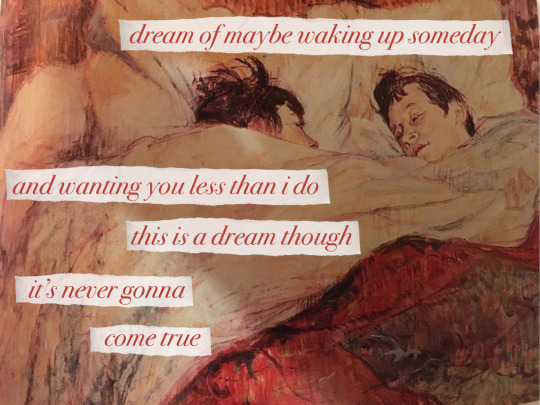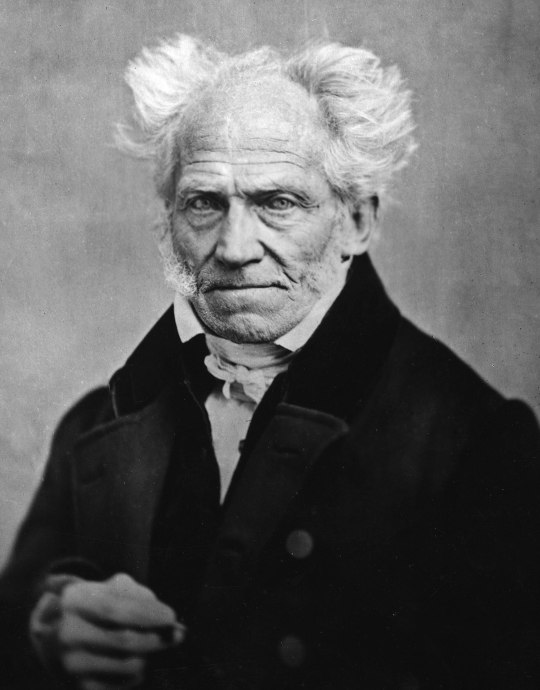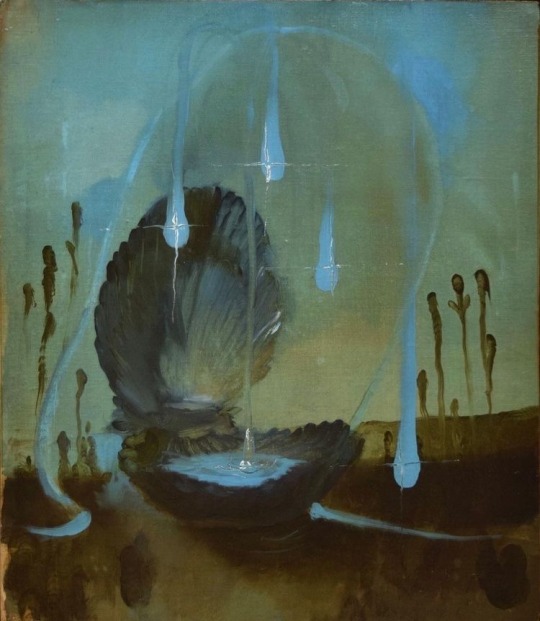#Transcendental aesthetics
Text
I think it should be known that when I’m talking about transcendental aesthetics I’m not talking about the study of space and time as the the a priori forms of perception but just what i look up on pinterest
16 notes
·
View notes
Text
The phenomenology of the life-world will take precisely the name of 'transcendental aesthetics'
The phenomenology of the life-world will take precisely the name of ‘transcendental aesthetics’
The phenomenology of the life-world will take precisely the name of ‘transcendental aesthetics’ (Formale und transzendentale Logik, p. 256).
Trân Duc Thao, Phenomenology and Dialectical Materialism, Springer Netherlands (1986), p. 227.
View On WordPress
#Edmund Husserl#Formale und transzendentale Logik#life-world#phenomenology#Transcendental Aesthetics#Trân Duc Thao
2 notes
·
View notes
Text
Delving into Kantian Philosophy: A Review of "The Critique of Pure Reason" by Immanuel Kant

Immanuel Kant's "The Critique of Pure Reason" stands as one of the most influential and enduring works in the history of philosophy, reshaping the landscape of metaphysics, epistemology, and the philosophy of mind. Published in 1781, this monumental treatise seeks to provide a comprehensive account of the nature, scope, and limits of human knowledge, offering profound insights into the nature of reality, the structure of the mind, and the conditions of possibility for knowledge.
At the heart of "The Critique of Pure Reason" is Kant's revolutionary concept of transcendental idealism, which posits that the mind plays an active role in shaping our experience of the world. Kant argues that the mind imposes certain fundamental concepts and categories—such as space, time, and causality—on our sensory perceptions, organizing them into a coherent and intelligible framework. Through his rigorous analysis, Kant seeks to uncover the a priori conditions that make experience possible, shedding light on the fundamental structures of human cognition.
One of the key themes of "The Critique of Pure Reason" is Kant's distinction between phenomena and noumena, or appearances and things-in-themselves. Kant argues that while we can only know phenomena as they appear to us through the filter of our cognitive faculties, there exists a realm of noumena that lies beyond the reach of human knowledge. This distinction has profound implications for Kant's philosophy, shaping his views on the limits of human understanding and the nature of metaphysical inquiry.
Moreover, "The Critique of Pure Reason" is notable for its meticulous analysis of the nature of space, time, and causality, which Kant identifies as the fundamental categories of human thought. Kant argues that these categories are not derived from experience, but rather constitute the necessary framework through which we interpret our sensory perceptions. By elucidating the synthetic a priori nature of these categories, Kant lays the groundwork for his transcendental idealism and challenges traditional empiricist and rationalist accounts of knowledge.
In addition to its groundbreaking philosophical insights, "The Critique of Pure Reason" is also celebrated for its rigorous methodology and systematic approach to philosophical inquiry. Kant's meticulous argumentation, intricate terminology, and careful exposition of concepts make "The Critique of Pure Reason" a challenging but rewarding read for scholars and philosophers alike. Kant's influence extends far beyond the boundaries of philosophy, shaping the development of disciplines such as psychology, physics, and linguistics, and leaving an indelible mark on the intellectual landscape of the modern world.
In conclusion, "The Critique of Pure Reason" by Immanuel Kant is a towering achievement in the history of philosophy, offering profound insights into the nature of human knowledge, the structure of the mind, and the limits of metaphysical inquiry. Kant's rigorous analysis, groundbreaking concepts, and systematic approach to philosophical inquiry make "The Critique of Pure Reason" a timeless classic that continues to inspire and challenge readers with its depth, complexity, and intellectual rigor.
Immanuel Kant's "The Critique of Pure Reason" is available in Amazon in paperback 24.99$ and hardcover 31.99$ editions.
Number of pages: 516
Language: English
Rating: 10/10
Link of the book!
Review By: King's Cat
#Immanuel Kant#Critique of Pure Reason#Transcendental idealism#Phenomena#Noumena#A priori knowledge#Metaphysics#Epistemology#Synthetic a priori judgments#Space#Time#Causality#Categories of understanding#Rationalism#Empiricism#Skepticism#Transcendental deduction#Transcendental aesthetics#Transcendental logic#Analytic judgments#Synthetic judgments#Appearances#Things-in-themselves#Transcendental unity of apperception#Unity of consciousness#Schematism#Idealism#Rationalist philosophy#Epistemological inquiry#Metaphysical inquiry
0 notes
Text
Delving into Kantian Philosophy: A Review of "The Critique of Pure Reason" by Immanuel Kant

Immanuel Kant's "The Critique of Pure Reason" stands as one of the most influential and enduring works in the history of philosophy, reshaping the landscape of metaphysics, epistemology, and the philosophy of mind. Published in 1781, this monumental treatise seeks to provide a comprehensive account of the nature, scope, and limits of human knowledge, offering profound insights into the nature of reality, the structure of the mind, and the conditions of possibility for knowledge.
At the heart of "The Critique of Pure Reason" is Kant's revolutionary concept of transcendental idealism, which posits that the mind plays an active role in shaping our experience of the world. Kant argues that the mind imposes certain fundamental concepts and categories—such as space, time, and causality—on our sensory perceptions, organizing them into a coherent and intelligible framework. Through his rigorous analysis, Kant seeks to uncover the a priori conditions that make experience possible, shedding light on the fundamental structures of human cognition.
One of the key themes of "The Critique of Pure Reason" is Kant's distinction between phenomena and noumena, or appearances and things-in-themselves. Kant argues that while we can only know phenomena as they appear to us through the filter of our cognitive faculties, there exists a realm of noumena that lies beyond the reach of human knowledge. This distinction has profound implications for Kant's philosophy, shaping his views on the limits of human understanding and the nature of metaphysical inquiry.
Moreover, "The Critique of Pure Reason" is notable for its meticulous analysis of the nature of space, time, and causality, which Kant identifies as the fundamental categories of human thought. Kant argues that these categories are not derived from experience, but rather constitute the necessary framework through which we interpret our sensory perceptions. By elucidating the synthetic a priori nature of these categories, Kant lays the groundwork for his transcendental idealism and challenges traditional empiricist and rationalist accounts of knowledge.
In addition to its groundbreaking philosophical insights, "The Critique of Pure Reason" is also celebrated for its rigorous methodology and systematic approach to philosophical inquiry. Kant's meticulous argumentation, intricate terminology, and careful exposition of concepts make "The Critique of Pure Reason" a challenging but rewarding read for scholars and philosophers alike. Kant's influence extends far beyond the boundaries of philosophy, shaping the development of disciplines such as psychology, physics, and linguistics, and leaving an indelible mark on the intellectual landscape of the modern world.
In conclusion, "The Critique of Pure Reason" by Immanuel Kant is a towering achievement in the history of philosophy, offering profound insights into the nature of human knowledge, the structure of the mind, and the limits of metaphysical inquiry. Kant's rigorous analysis, groundbreaking concepts, and systematic approach to philosophical inquiry make "The Critique of Pure Reason" a timeless classic that continues to inspire and challenge readers with its depth, complexity, and intellectual rigor.
Immanuel Kant's "The Critique of Pure Reason" is available in Amazon in paperback 24.99$ and hardcover 31.99$ editions.
Number of pages: 516
Language: English
Rating: 10/10
Link of the book!
Review By: King's Cat
#Immanuel Kant#Critique of Pure Reason#Transcendental idealism#Phenomena#Noumena#A priori knowledge#Metaphysics#Epistemology#Synthetic a priori judgments#Space#Time#Causality#Categories of understanding#Rationalism#Empiricism#Skepticism#Transcendental deduction#Transcendental aesthetics#Transcendental logic#Analytic judgments#Synthetic judgments#Appearances#Things-in-themselves#Transcendental unity of apperception#Unity of consciousness#Schematism#Idealism#Rationalist philosophy#Epistemological inquiry#Metaphysical inquiry
1 note
·
View note
Text

by Ernst Steiner
#painting#art#occult#esoterist#esoteric painting#esoteric aesthetic#witchy aesthetic#visionary#transcendental#transcendent art#moodyvibes#whimsicore#dreamcore#liminal#esoteric#dream aesthetic#dream painting#dream vibes#mystical#mysticism#mystic aesthetic#enochian#paganism#whimsigoth#whimiscal#oil painting#vintage art#art history#weird art#trippy
557 notes
·
View notes
Text

plug a night light in. leave the porch light on.
night light - the mountain goats // THE BED - henri de toulouse-lautrec
#cause the small dark corners#breath like heavy animals#night light#the mountain goats#art#aesthetic#aes#h8#john darnielle#henri de toulouse lautrec#the bed#painting#transcendental youth#words#lyrics#lyric#lyric edit#the mountain goats edit#the mountain goats lyric edit#edit
406 notes
·
View notes
Text
The Romantic in me is like "Take this opium! By this you can escape Tyranny. They wish to separate us, my beloved, but death shall unite us." and the the Transcendentalist in me is like "Or dude you could just go clean your room, touch some grass, and write a poem about your sister." And I don't know who to listen to T-T
On the flip side, the mystic in me is telling me to commune with the dead, consume someone's body and take a bath in some blood so I might go do that-
#romanticism#dark romanticism#light academia#dark academia#dark academia aesthetic#romantic academia#chaotic academia#personal aesthetic#kaleb aesthetic#this is me#transcendentalism#mysticism#spirituality#spiritual#ritual#the blood of a poet#the blood of jesus#dark academia aesthetics#dark academia quotes#dark academia literature#dark acadamia aesthetic#dark academia lifestyle#dark academia books#christianity#percy bysshe shelley#little women#the bible#romantic poets#the romantics#christian mysticism
15 notes
·
View notes
Text
“A high degree of intellect tends to make a man unsocial.”

Arthur Schopenhauer was a German philosopher. He is best known for his 1818 work The World as Will and Representation.
#Pessimism#Will and Representation#Metaphysics#Ethics#Existentialism#Philosophy of Mind#Kantianism#Aesthetics#Solipsism#Nihilism#Idealism#Compassion#Individualism#World as Illusion#Transcendental Idealism#Suffering#The Fourfold Root of the Principle of Sufficient Reason#Eastern Philosophy Influence#Art and Beauty#Critique of Hegel's Philosophy#today on tumblr#quoteoftheday
25 notes
·
View notes
Text

And what does the blue bird know of human civilization,
Dancing between trees in its airborne ballet,
silent on some barked limb until it sounds
four ill-timed, hideous squaks?
It thinks nothing of its sound and moves quickly
onto unnatural rooftops, housing
angry televisions of discouraging light--

Or the Robbin with its red chest,
staring with a cocked and curious neck--
This one stands on the still, unthinking grass,
safe in its own solitude like a black armored
poet in the zen of a quiet mind--

There is no philosophy here;
no words to build societies;
no questions of oppression or work;
but the everlasting calm of is-ness,
the constant search for mate and feed,
digging into the rough, uncultivated earth
like a free and playing child dirtying her
fingernails without fear of the future washed hand--
I imagine the stoned artists tries to find this
in the loneliness of a late and pretentious evening--

There are no cities here,
no questioning thoughts of the self;
these birds have no existential Sartre,
no Camus defining the struggles of Sisyphus,
no parodied Decartes,
even Lau Tzu could not see within these eyes--
he knew the connections of things,
the dichotomy of is and is not,
the fact that those with nothing have
nothing either to give or to lose,
but always have all things to offer and gain--
But even he knew not the absolute zen
of immaterial survival.

The grass reaches like eyelashes to the bird's feet,
but is crushed by the flat edges of bone and flesh--
no muscles or blood here,
only dirt never disturbed--
even as one's hand moves it, it does not know or care
and even lays itself lazily over concrete and rubble--
the tree uproots the home
and does not care and still should not--
Moss, mold, water, and air
devour overpasses in time and always will--

I spoke to a woman who proclaimed
her fear of humans as animals--
that we transcend this state and so dominate the earth--
but still we breathe, vile, speak
but still we think, immaturity, breed
has lain his swimming seed,
but still no amount of concrete and steel
can steal away the flesh and the blood,
but still, the organs work and filter and breathe,
but still we are evolved and yet evolving animals,
and still no god favors one living thing over the other.

Remember--
the fool forgets flesh,
pushes aside the organic brain and eyeballs,
spills philosophy and poetry over masses and cultures,
assumes great buildings divide one from nature
for the beating of the heart and movements of the bowels are nature.

And oh--
What a fool I am.

nocturne
#nocturne writes sometimes#for someone who loves transcendentalism#dead poets society#dark academia#dark romanticism#dark academia literature#oc poem#oc poetry#spilled ink#love poems#moon aesthetics#dark acadamia aesthetic#poetries
5 notes
·
View notes
Text

Simeon Stylites or Symeon the Stylite (c. 390 – 2 September 459) was a Syrian Christian ascetic, who achieved notability by living 37 years on a small platform on top of a pillar near Aleppo (in modern Syria).
#ascension#transcendence#transcendentalism#asceticism#ascetic monk#ancient history#weird history#gothic#goth aesthetic
4 notes
·
View notes
Text


Transcendental Cinema || The Art of Boredom ||
Ida (2013), Paweł Pawlikowski
Wanda : Do you have sinful thoughts sometimes?
Anna : Yes
Wanda : About carnal love?
Anna : No.
Wanda : That's a shame. You should try, otherwise what sort of sacrifice are these vows of yours?
#pawel pawlikowski#transcendental#boredom#polish film#polish cinema#cinematography#drama#movies#film gifs#movie gif#movie gifs#war film#agata trzebuchowska#second world war#cold war#film aesthetic#black and white film#european film#films#filmography#independent movies#world cinema#cinema#joanna kulig#tomasz kot#agata kulesza#favorite movies#quotes#movie quotes#film quotes
47 notes
·
View notes
Text



#photographers on tumblr#abstract#artists on tumblr#physics#quantum physics#transcendentalism#zen buddhism#poetry#mysticism#dark aesthetic#emo#emo girl#mcr#bloodbath
5 notes
·
View notes
Photo

10 notes
·
View notes
Text
The Gaze A Conceptuality
The conceptuality of the gaze was introduced into philosophical literature by the psychiatrist Jacques Lacan. Now what would gaze mean? Gaze is the intentionality of possession. Here in this narrative, I would like to elaborate on the concept of the gaze. I have developed many concepts of the gaze and they are:
(1 Gaze of the gladiator
(2 Clinical Gaze
(3 Gaze of the Muse
(4 Amorous gaze
5) Gaze of intuition
(6 Transcendental Gaze
(7 Gaze of empathy
1 The Gaze of the gladiator
The gaze of the gladiator refers to keeping a surveillance on individuals by governmental and private organizations. With reference to governmental gazing there is an involvement of the government to collect data of the citizens. There are instances where the data collected is sold to private firms for money. Governmental data collection is misuse and abuse of data. With reference to the gaze of private organizations: there is data snooping and violation of the privacy of the individuals. The gaze of the gladiator is sinister and diabolic.
2 Clinical Gaze
The second type of gaze is the clinical gaze. It is the gaze of a physician and it can be psychiatric or a physical gaze. The clinical gaze involves diagnosis and prescription. It is a gaze of dominance. The clinical gaze involves a confinement of people and this takes place in hospitals and asylums. The fate of the patient is left to the mercy of the doctor. The clinical gaze involves the breakdown of subjectivity and freedom. The scalpel, medicines and treatment are instruments of bondage and domination.
3 Gaze of the Muse
The gaze of the muse is a creative and appreciative gaze. Poets, novelists, painters and philosophers come under this category. Inspiration is the subconscious fecundity of generation. Every experience becomes a subjectivity of processes. Gaze of the muse for the poet is the transcendental subjectivity of transforming experiences into the art of poetry. Muse for the painter is a surreal cathartic release of picturesque images into a transformative capacity of creating the art of meaning. The gaze of the novelist is a cathartic involvement of creating an art from the person’s subjectivity of experience. The gaze of the muse for the philosopher is generating a fecundity of ideas. The gaze of the muse of appreciation is the perceptual transcendence of emotion into a feeling of subjective poetry.
4 Amorous Gaze
The amorous gaze is an erotic gaze. It is a gaze of ecstasy, orgasm and romance. There is a Romeo and Juliet experience of cathartic subjectivity. It is a painting made by the bodies in love. The body undergoes a tremor of poetic subjectivity.
5 The Gaze of Intuition
The gaze of intuition is listening to the voices in the soul. It is a process of listening to the heart. The voice of the soul is a dialogic mechanism, a manifestation of will and feeling into a happening of reality. The gaze of intuition is also the voice of conscience. The gaze of the muse is also poetry of intuition.
6 Transcendental Gaze
The transcendental gaze is the translation of desires and dreams into a manifestation of reality. The methods of transcendental gaze involve auto-suggestion, power of positive thinking, creative visualization and wish fulfillment. It is a beatific connection of the unconscious mind with the conscious mind. Desire and dreams become will and wish manifestations of reality.
7 Gaze of empathy
Now what does the gaze of empathy mean? It is an intention to enter into the other’s subjectivity. The gaze of empathy involves caring, sympathizing, relating and realizing other’s thoughts and feelings. Gaze of empathy is the gaze of caring and understanding the subjectivity of the other.
#Literature#Art#Aesthetics#Philosophy#Postmodernism#Literary theory#Gaze#Gaze of the Gladiator#Clinical Gaze#Gaze of the Muse#Amorous Gaze#Gaze of intuition#Transcendental Gaze#Gaze of empathy
4 notes
·
View notes
Text

by Rae Klein
#witchy#whimsigoth#esoteric#fairy girl#whimiscal#whimsicore#dreamcore#fairycore#goddess#pagan#pagan community#witchy art#transcendental art#surealart#oil painting#painting#aesthetic art#witch aesthetic
35 notes
·
View notes
Text





"The sky is the daily bread of the eyes"
-Ralph Waldo Emerson
0 notes